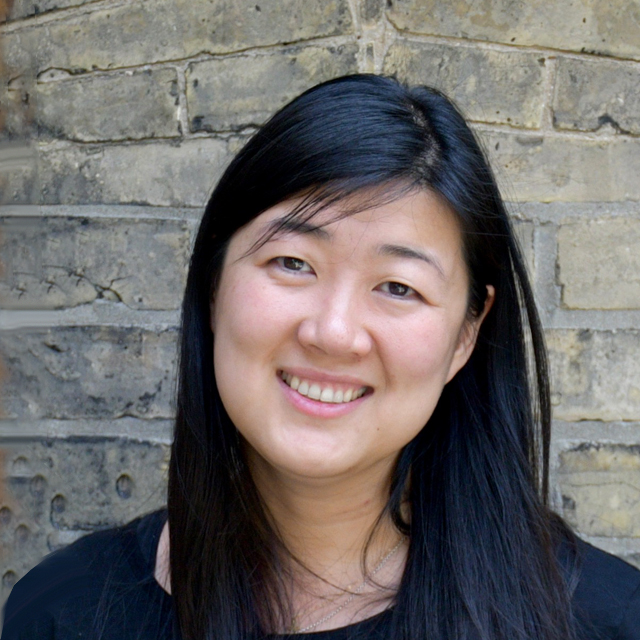Haissi Cui
Assistant Professor, Department of Chemistry
 Haissi Cui is an assistant professor in the Department of Chemistry. She was born in China but grew up in Germany where she obtained her BSc and MSc in biochemistry from the Technical University of Munich (TUM) as well as her PhD. She then held research positions at TUM and was a postdoctoral fellow at the Scripps Research Institute in La Jolla, California.
Haissi Cui is an assistant professor in the Department of Chemistry. She was born in China but grew up in Germany where she obtained her BSc and MSc in biochemistry from the Technical University of Munich (TUM) as well as her PhD. She then held research positions at TUM and was a postdoctoral fellow at the Scripps Research Institute in La Jolla, California.
Since joining the University of Toronto in 2022, Cui has been focused on elucidating how the first step of protein synthesis — which constitutes the interpretation of the genetic code — is spatially regulated in human cells.
“All life on earth follows a simple principle,” she says, “which is referred to as the central dogma of biology: Information is encoded in DNA, which is then transcribed into RNA. RNA guides the assembly of amino acids into proteins, in a process called protein synthesis or mRNA translation. As this process is integral to all life forms, mutations or defects in the associated factors can lead to severe disease, most notably, to impaired brain development in humans.”
The first step of protein synthesis is the physical attachment of the building blocks of proteins, amino acids, to an RNA adapter, so called transfer RNAs (tRNA). tRNAs contain an element that pairs with the mRNA and the attached amino acids are thereby brought in the correct order to be assembled into proteins. The assignment of the correct tRNA to its matching amino acid is enabled by a family of enzymes called aminoacyl-tRNA synthetases. Aminoacyl-tRNA synthetases are thereby the enzymes that know the genetic code and ensure its correct interpretation, a process that takes place in each one of us every day and every second.
Cui’s focus is on aminoacyl-tRNA synthetases. Her group studies how the localization of aminoacyl-tRNA synthetases in large and complex cells can influence their function and what the consequences are when they get misplaced. To answer this question, her research group uses different methods, starting with the construction of custom chemical tools, to engineered cell lines to study a specific defect found in humans.
“It’s just a wonderful time for RNA research,” she says. “Explaining what I do has become a lot easier thanks for the success of the mRNA vaccines. New methods in data collection allow us to learn new things quickly and get closer to a more complete picture. Research is generally much more interdisciplinary, and I found my field to be especially friendly, collaborative and open to new concepts and ideas. It is all built on the hard work that took place over the last decades so many findings that we base our studies on are very solid, well understood on some levels, and so it often feels like we are now just doing the fun part!”

